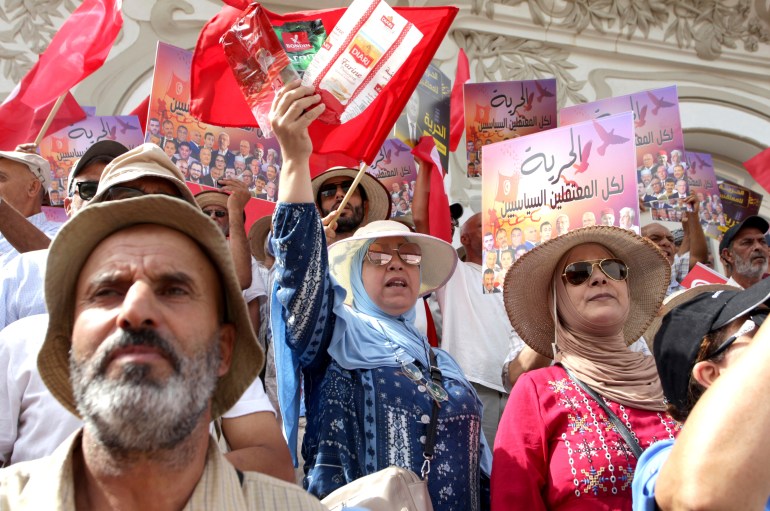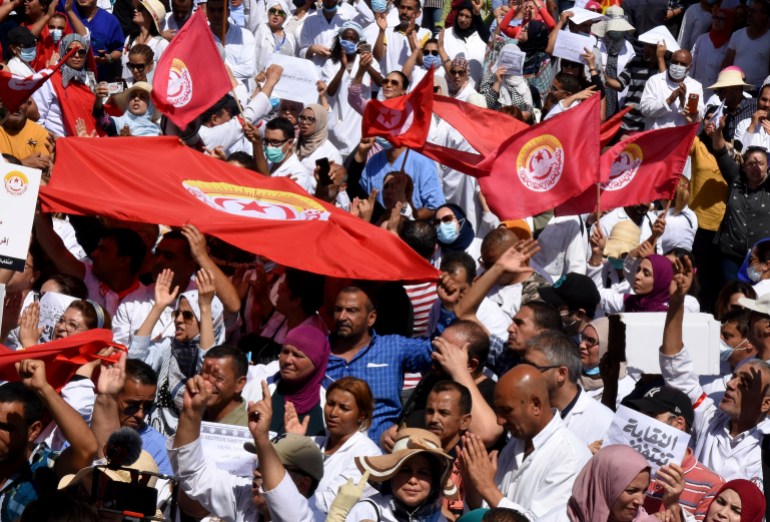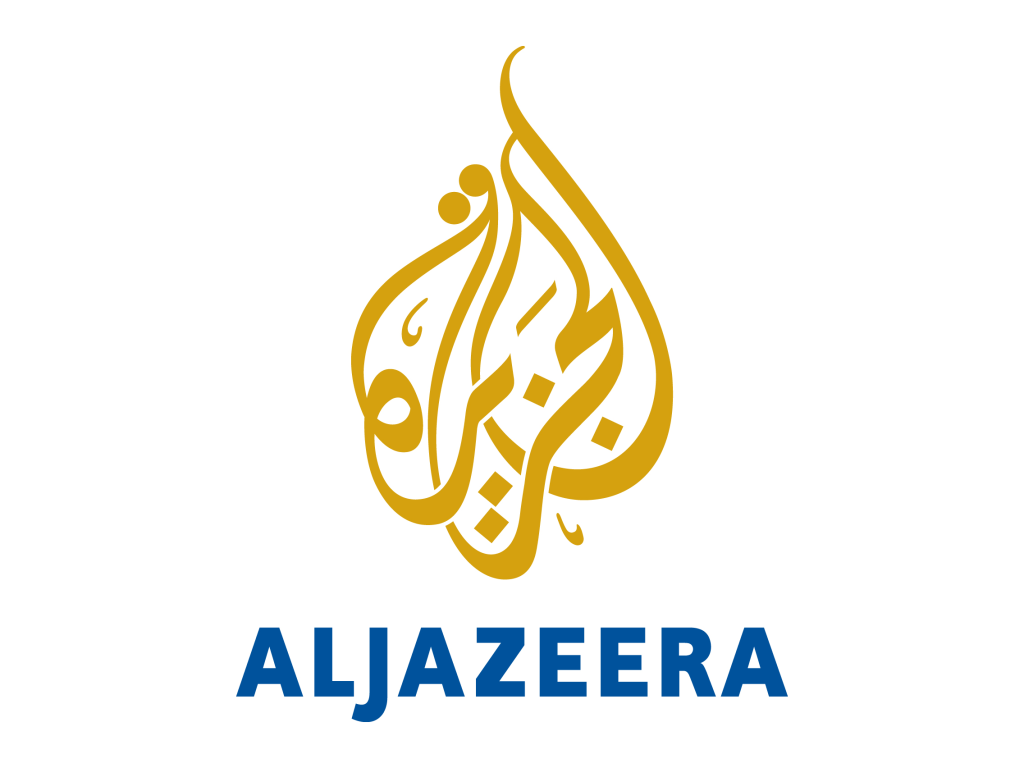ARTICLE AD
By borrowing billions from the central bank to shore up the budget, the president could well worsen Tunisia’s economic woes.
Tunisian President Kais Saied is preparing to seek direct financing for the government’s budget from the Central Bank of Tunisia in a move analysts say could worsen the financial difficulties the country has been experiencing since before its 2011 revolution.
Shortfalls in the budget have already resulted in the absence of state-subsidised goods like flour, rice and coffee from supermarket shelves as inflation pushes the prices of other goods beyond the reach of many households.
With gaps in last year’s budget as well as a 10.6-billion-dinar (about $3.4bn) shortfall in the current year, the state is looking to compel the Central Bank to purchase government bonds as a way to raise direct funding.
Government proposals were discussed by the parliament’s finance committee on Wednesday with what are understood to be instructions to fast-track its passage to parliament next week, where it can be voted upon during its plenary session.
“Tunisia has run out of credit,” Hamza Meddeb of the Carnegie Middle East Center said. “Its negotiations for a further loan with the International Monetary Fund [IMF] appear stalled. There are no new payments coming from the European Union for its part in helping curb the flow of irregular migrants and no sign of financial help coming from elsewhere.
 Tunisians demonstrate against Saied during Tunisian Republic Day in Tunis on July 25, 2023. The sign in Arabic reads: ‘Freedom for all political prisoners’ [Hassene Dridi/AP Photo]
Tunisians demonstrate against Saied during Tunisian Republic Day in Tunis on July 25, 2023. The sign in Arabic reads: ‘Freedom for all political prisoners’ [Hassene Dridi/AP Photo]
“Tunisia needs cash immediately. It can’t wait,” he said.
The legislation – if passed, as looks likely – would threaten the bank’s independence and, by devaluing its own currency, risks triggering a wave of inflation that its outgoing governor, Marouan Abassi, previously likened to that of Venezuela, where percentile increases in the cost of goods and services are now measured in the hundreds.
The Central Bank authorised a brief raid on its reserves in 2020 and released 2.8 billion dinars (roughly $900m) under exceptional legislation to help combat the spread of COVID-19. At the time, international bodies, including the IMF were happy to waive the implications of the move, given circumstances that were, by any measure, unprecedented.
The Central Bank has remained a respected pillar of the Tunisian state, retaining broad control over interest rates, helping mitigate the worst effects of the country’s economic decline and proving vital in maintaining the confidence of international financial backers, such as the IMF and World Bank.
“Central banks … rely upon their independence,” economist, Aram Belhaj from the University of Carthage said.
In addition to their critical role in helping control inflation by setting interest rates, they also tie the hands of politicians, Belhaj explained.
“If you have politicians with unrestricted powers, they will use the central bank to finance expenditures, possibly funding electoral objectives. Therefore, the independence of the central bank is crucial. It effectively limits political pressure,” he said.
 Tunisian health workers protest during a general strike organised by labour unions demanding pay raises and more government support in Tunis on June 18, 2020, as unemployment and poverty rise [File: Hassene Dridi/AP Photo]
Tunisian health workers protest during a general strike organised by labour unions demanding pay raises and more government support in Tunis on June 18, 2020, as unemployment and poverty rise [File: Hassene Dridi/AP Photo]
While the current legislation does not explicitly mark the end of the bank’s independence, it does undermine a 2016 law that separates the state from the central bank and is the subject of sporadic presidential criticism.
“The new legislation is not part of a broader approach that would allow the Central Bank to integrate [with the economy] or become more involved in growth and development issues,” Belhaj said.
“It’s just a modification that allows the government to obtain an advance of 7 billion Tunisian dinars [$2.24bn] – which is an incredibly large amount – to finance the budget deficit,” he said.
Tunisia had been in negotiations with the IMF for a further $1.9bn bailout. However, what looked to have been a finalised deal was rejected by Tunisia in April when Saied rejected the body’s “foreign diktats” intended to curb spending on subsidies and government salaries – said to be, per capita, among the highest in the world.
“This speaks as much about desperation as anything else. It tells us that the state didn’t have any other options. They needed capital, and they needed it immediately. All other options would have required negotiations and time,” Meddeb said.
“Moreover, we don’t even know which funds the government is drawing upon, and that’s critical. If it seeks to access the bank’s foreign reserves, it risks Tunisia’s devaluation of the dinar. If it accesses our domestic reserves, we’re essentially printing our own money to pay our bills.
“Neither makes Tunisia a particularly attractive option to investors or backers.”

 11 months ago
70
11 months ago
70 